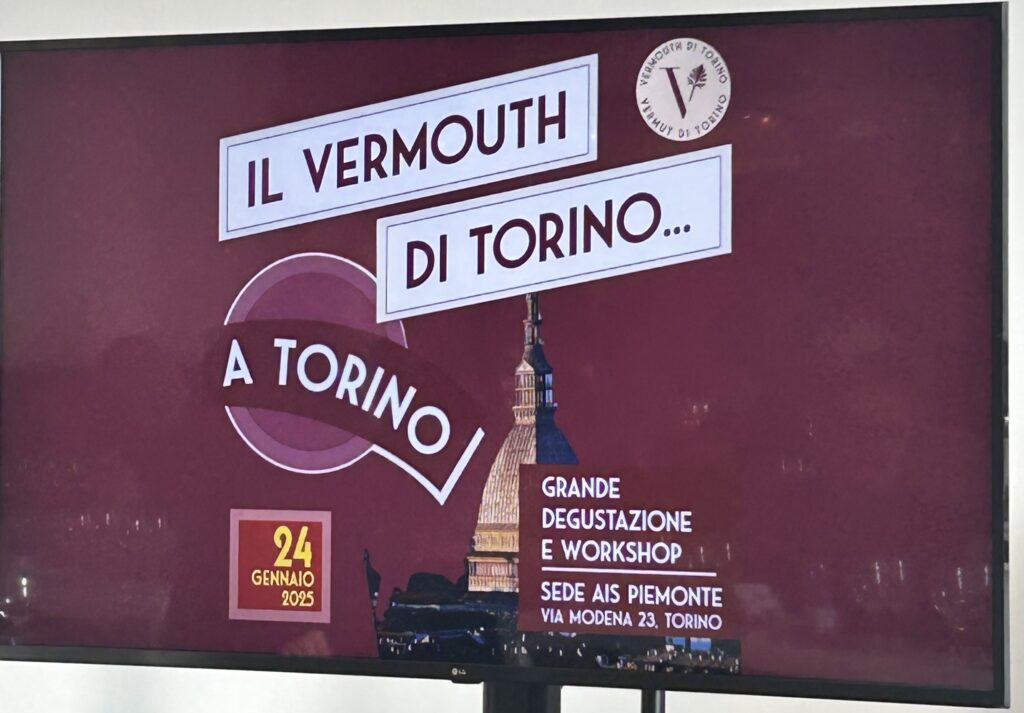There is a certain magic in Vermouth of Turin that transcends its botanicals, Artemisia, or the secret recipes passed down through centuries. It’s a unique combination of quality, innovation, and research, enriched by the timeless allure of a product that embodies history and culture. Today, this magic translates into remarkable commercial results, particularly in the context of the global wine industry. But what exactly is the “magic”Vermouth? Could it serve as a case study to inspire strategies for capturing the interest of hesitant or “unfaithful” wine consumers?
If there’s one product that can help demonstrate to skeptical policymakers that wine is far more than just an alcoholic beverage, and one that, on a tourism level, offers unparalleled charm and versatility, it’s the Vermouth of Turin. From its centuries-old history and carefully guarded botanical formulas to its labels, which are works of art in their own right, and the iconic places where it’s enjoyed such as the historic cafes of Turin and Piedmont: Vermouth is a cultural treasure like no other.
On January 24, during an event dedicated to Vermouth of Turin held at the AIS Piemonte headquarters, the President of the Vermouth Consortium, Roberto Bava, reflected on the key milestones in the revival of this iconic product, joined by Vice President Matteo Bonoli and Director Pierstefano Berta.
“Vermouth of Turin is more than an aperitif”it’s a window into the history, traditions, and excellence of our territory. It was the first enogastronomic product from Piedmont to reach international markets as early as the 1800s, and today it continues to conquer the world, being present in over 80 international markets” Bava stated during the morning press conference.
The numbers speak for themselves: since 2018, sales of Vermouth of Turin have grown by an average of 24.7% annually, with revenue increasing from 32 million in 2018 to 172 million in 2024. “ This is an extraordinary achievement-,added Director Berta, -demonstrating the immense potential of Vermouth to attract new consumers, especially those who might find the world of wine too complex or elitist.
The Tourism Potential of Vermouth
In the afternoon, the focus shifted to Vermouth’s tourism potential with a workshop dedicated to the ““”Strada del Vermouth” (Vermouth Route). During the session, Iter Vitis announced its interest in integrating this new route into its network, recognizing Vermouth as a cultural heritage symbol.
Iter Vitis also unveiled an agreement with the historic cafés of Turin and Piedmont, which will be certified as Iter Vitis destination. This initiative acknowledges these cafés not only as iconic consumption spaces but also as authentic cultural and tourist attractions.
This project aims to strengthen the connection between the tradition of Vermouth and the Piedmont region, offering visitors a unique experience that combines tastings, culture, and iconic venues like historic cafés.
All over the Vermouth day , tasting stations showcased the history and flavor nuances of various Vermouth labels, along with the botanicals used in their production, transporting participants on a unique sensory journey. The diversity of flavors left many eager to collect them all, as each Vermouth tells its own distinct story.
Vermouth of Turin is much more than a product, it is a symbol, an icon that tells the story of Piedmont and its ability to innovate while staying true to tradition. It’s a cultural, enogastronomic, and tourism experience that deserves to be recognized and celebrated on a global scale.
In Vermouth of Turin, past, present, and future converge. Perhaps it is in this alchemical combination that its magic truly lies.
#VermouthDiTorino #IterVitis #Piedmont #WineCulture #VermouthRoute #ItalianExcellence

